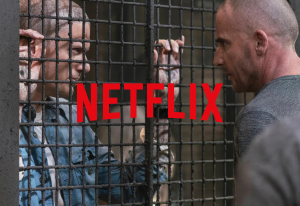Patrick Stewart is back after almost two decades away from Starfleet Command to embark on a new chapter in the life of Jean-Luc Picard in Star Trek: Picard on CBS All Access. Reaching back as far as 2002, Star Trek fans said goodbye to the cast of Star Trek: The Next Generation with the release of Star Trek: Nemesis. It was something of a downer. The 15 years spent adventuring with the Next Gen crew concluded with Nemesis tearing the family apart and leaving little behind. Captain Jean-Luc Picard, having lost his biological family in a previous film, lost most of the family that was his crew to new assignments or to death. With Picard, the series seems poised to restore the hope and optimism that characterized Picard’s voyages through the final frontier.
Videos by ComicBook.com
As the series begins, Picard has retired from Starfleet and lives a quiet life on his family’s French vineyard. Picard and Starfleet didn’t part ways on amicable terms. Picard left in protest when Starfleet chose not to rescue its old adversaries, the Romulans, from certain doom. The death of Commander Data, who sacrificed his own life to save Picard, also weighs heavy on Picard.
But as chance would have it, Data’s legacy and the fate of the Romulans are two threads in Picard’s life that have become intertwined. Picard becomes aware of this when he’s approached by a mysterious girl named Dahj. Presented with an opportunity to make up for two decades worth of inaction, Picard sets about assembling a new crew to carry out his self-given mission, with or without Starfleet’s sanction.
Described by producers as a hybrid of Next Gen and Star Trek: Discovery, Picard abandons Next Gen‘s episodic adventure model. Instead, it doubles down on character work. The series presents itself as a character drama in which Stewart gets to grow his most popular role in new and interesting ways.
Like Discovery, the show looks like modern prestige television. Unlike Discovery, it doesn’t try to imitate blockbuster films. Picard is more pensive and more deliberate, which is a fitting tone for Star Trek’s most thoughtful, philosophical captain. That’s not to say it lacks action, because the action is there, but it comes in short, tense bursts. Director Hanelle Culpepper excels at shots that soak in the warmth of Picard’s pastoral existence, and she knows how to make talking heads look interesting, aided by some stellar set design.
Despite the differences, the essence of Picard that will be familiar to Next Generation fans will be its incandescent warmth, much of which emanates from Stewart’s performance as Picard. He’s 20 years older than he was when we last saw him in Nemesis and weighed down somewhat by age and regret. And yet, there are moments when he comes alive and it’s like he never left the Enterprise bridge. It’s rewarding watching as he shakes off his emotional atrophy and his way back to being, as one of his new Romulan friends puts it, “The captain they remember.”
The show also gifts Stewart with a strong, new supporting cast to work with. Alison Pill is buoyant as Dr. Agnes Jurati, a brilliant scientist whose knowledge may prove vital to Picard’s mission. She’s mild-mannered, sharp, and witty, the kind of character that thrives in the Star Trek universe like nowhere else. By contrast, Santiago Cabrera plays Chris Rios, a pilot and ship captain with a mysterious past who is a little rougher around the edges than a standard-issue Starfleet officer. Michelle Hurd plays Raffi Musiker, Picard’s former first officer. The two had a falling out around the time he resigned, as the blowback derailed Musiker’s career. It creates a dynamic between them that’s a far cry from Picard’s relationship with Will Riker, with the first episodes giving us the basics of who these characters are, but the vibrant performances will have audiences ready and eager to get to know them better.
Not every character comes out looking so well. There’s a second storyline running parallel to Jean-Luc’s return to action that involves Narek, a Romulan agent, played by Harry Treadaway, and another character that we won’t spoil here. This secondary story is more of a myth-building mystery box that doesn’t offer as strong a hook as Picard’s personal reawakening, relying more on the promise of an unraveling mystery than on Narek’s character, so all Treadaway is left to do is his best posturing and slinking in the meantime.
There are a few additional other fumbles in these first few episodes and instances of clumsy storytelling. Upon meeting Picard, Dahj makes an emotional speech about how safe she feels with him, only to take off in the middle of the night without explanation. The episode later backfills the motivation for this moment, but it’s a decision that should have happened on screen. Without seeing the decision being made, it feels like the plot moved her out of the way for convenience. These first few episodes also handle exposition with varying degrees of grace. Sometimes it works, like revealing information through an interview with a reporter, but other times it’s less effective, such as having a character monologue their backstory to a hologram. It’s all to get this group established and the story rolling with efficiency but the storytelling feels less organic as a result.
Despite a few small missteps, the first few episodes of Star Trek: Picard are an engaging return for the titular character. Stewart’s powerful presence is the show’s backbone, but these new characters are endearing in their own right. The story is only getting started, with the first three episodes playing out like a three-act film, but it is simultaneously rewarding for longtime Star Trek fans while also being welcoming for newcomers. Star Trek: Picard looks to be an inspiring return for the titular character and fans new and old will be thrilled to be a part of the adventure.
Rating: 4 out of 5
New episodes of Star Trek: Picard become available to stream Thursdays on CBS All Access.
Disclaimer: ComicBook.com is owned by ViacomCBS.








